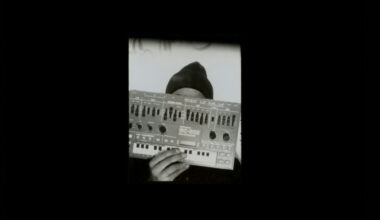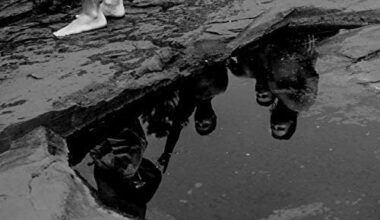Forge Masters

Sheffield’s hidden charms have often eluded outsiders. Among Europe’s greenest cities (one of its vast parks cuts a verdant swathe right through the place, from near its centre right out into the wild hills of the Peak District), its gritty industrial heritage is nevertheless the one that got intractably stuck in the national subconscious. Even the fair-minded George Orwell once labelled it “the ugliest town in the Old World”.
It never was the prettiest place. With the clanking cacophony of steel-making, graft always came first. But caught up in Britain’s general post-war industrial decline, Sheffield suffered badly and by the late 70s things looked particularly grim for the former industrial powerhouse.
So thank God for punk. Well OK, maybe it wasn’t that simple, but it’s nevertheless undeniable that a good part of Steel City’s resurrection story is all about the freedom that punk granted the talented folk of Sheffield to forge a sound that echoed the explosive clatter, crash and thrum of the foundries and factories the city was built around. A stark, singular brand of mostly primitive technology-led music that was surprisingly easy to dance to. Its scene caught on, and the music world shifted on its axis.
You know about The Human League, ABC and Heaven 17 of course, and maybe Clock DVA and British Electric Foundation too. But how are you on Treebound Story, The Danse Society or Vision? They’re all here, from the global giants to the long-forgotten locals-only heroes, so you can join the dots while revelling among four CDs of belters, classics and rarities.
There’s brilliantly insightful essays, memoirs and sleevenotes as well as archive images that combine to tell a compellingly rounded story of how Sheffield’s music scene jumped, as the received wisdom goes, from glam rock to post-punk with nothing in between.
It’s all recounted by scenesters of the time, such as Martin X Russian (of They Must Be Russians, Artery and fanzine NMX fame). He tells a priceless tale, such as when he drunkenly mistook fabled writer William Burroughs for Ian Curtis’ dad, or of doing nothing to quell the false rumour that an unknown act from Scunthorpe called Urban Tech, who he’d unwisely booked for a gig, were in fact The Human League under a pseudonym. Unsurprisingly, the gig swiftly sold out.
Disc one covers 1977-1981, when it all started to happen. And though perhaps inevitably opening with The Human League, much of the tracklist is admirably populated by obscure beauties, such as The Prams’ tight, dazzlingly percussive 1979 Jam-meets-The Adverts new wave cracker ‘Modern Men’. And even the League’s tune, the John Leckie-produced instrumental ‘Dancevision’, will be unfamiliar to many. Originally released on their ‘Holiday ’80’ EP, it is stark, propulsive and insistent, but caries subtle kosmiche-inspired depth and serves as a particularly well-chosen amuse-bouche to the electrifying feast that follows.
The second disc covers just one year, the pivotal crossover period of 1981-82, but it is just as well balanced. So alongside Heaven 17’s ‘(We Don’t Need This) Fascist Groove Thang’, we’re also served little-known tracks like the irresistible, dancefloor-friendly proto-electro of Vision’s ‘Lucifer’s Friend’. Formed by keyboardist Andy Beaumont, this short-lived act never made much of a domestic impact, but the open-air disco-loving Europeans went mad for them, sending the track to the top of the Italian charts like a coldwave rocket.
Disc three moves us on into the mid-80s, and begins proceedings with Pulp’s 1983 happy-go-lucky indie-definitive ‘Everybody’s Problem’, a single that bought Jarvis Cocker’s by-then five-year-old band more time on the local circuit. Incredible really, that they continued to stop-start for another decade before ‘His ’N’ Hers’.
Elsewhere though, we hear a shift. Bands like UV Pop, Ipso Facto and In The Nursery played with increasing ambition and confidence; The Danse Society’s icily propulsive ‘Danse/Move’ in particular has a cosmopolitan swagger that perhaps chimes with their hometown’s exponentially increasing musical stock. A tasty deal with Arista followed, although long-term success did not.
The final disc takes us beyond what any of us might consider a characteristically Sheffield sound, perhaps given that much of what genuinely exploded beyond the confines of the People’s Republic Of South Yorkshire had long since done so by the late 1980s.
There’s still a story here though, embodied as well as any by indie act Treebound Story who boasted Richard Hawley and Babybird’s Rob Gregory among its talented line-up. Hawley famously refused to decamp to London, LA, Paris or wherever, such is his fondness for the city he loves. His is a true Sheffield voice no doubt, but so much of what preceded his first band in that fine city speaks far more keenly of the sound of heavy industry translated, or declining fortune reborn as ambitious creative resistance. It’s a big story in the pantheon, and infinitely worthy of your time.





